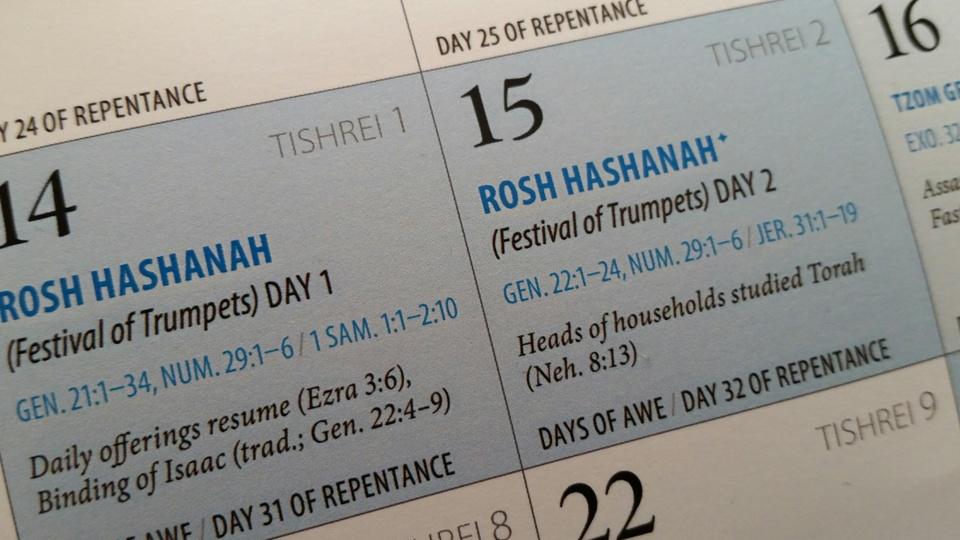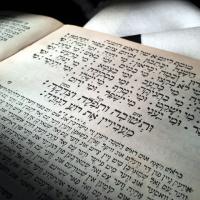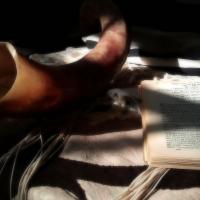Beth Immanuel is a friendly and welcoming community. Click here to learn what to expect when you visit.

Doubling Holidays: Are Two Heads Better than One?
Two “Heads” Are Better than One?
If you compare a modern-day Jewish calendar with passages in the Torah that refer to the holidays (such as Leviticus 23), you will find a notable discrepancy. Many holidays that the Bible seems to say last for one day are observed for two days on the Jewish calendar.
For example, Shavu’ot is a one-day holiday that should fall on the sixth of the Hebrew month of Sivan. But on the Jewish calendar, it is observed on the sixth and the seventh of Sivan.
Similarly for Passover, the Bible only seems to say that the first day and seventh day have festival restrictions on what kind of work can be done, but in Jewish practice, both of those days are doubled. In fact, it is customary to have a seder on both the first night and the second night. The first day, second day, seventh day, and eighth day are observed as festivals.
The same is true for Rosh HaShanah, the beginning of Sukkot, and Shmini Atzeret. (The second day of Shmini Atzeret is given a special name—Simchat Torah—but in theory it is actually a doubling of Shmini Atzeret.)
More Questions
The mystery is deepened if we look at an Israeli calendar rather than one for the Diaspora. Within the land of Israel, the holidays are not doubled. Shavu’ot is one day long. There is only one Passover seder night. Shmini Atzeret and Simchat Torah are the same day. The only exception to this is Rosh HaShanah, which literally means “Head of the Year.” Even in the land of Israel, Rosh HaShanah lasts for two days just like outside the land.
Finally, one more seemingly related question can be asked. Rosh Chodesh, literally “Head of the Month,” is the term for the beginning of the Jewish lunar month. One would think that it should be observed for one day. However, for some months it is listed as one day; other times it is for two days. Furthermore, the observance is the same inside or outside the land of Israel.
To summarize, we have several questions to ask:
- Why are these festivals observed for two days instead of one?
- Why are most festivals doubled outside the land of Israel but not inside?
- What is unique about Rosh HaShanah that causes it to be doubled even in the land of Israel?
- Why is Rosh Chodesh doubled, and why only sometimes?
The Observed Calendar
A lunar month is the time it takes for the moon to rotate through each of its phases. It begins with the appearance of the first sliver. One complete lunar cycle takes roughly 29.5 days. Since we don’t want a month to change in the middle of a day, lunar months must alternate between 29 and 30 days.
But how do we decide which months should be 29 days long, and which get an extra day?
In the days when the Temple stood, this was determined through a judicial process. When the first sliver of the month appeared, witnesses would rush to the high court (Sanhedrin) where they would be cross-examined to be certain that they were telling the truth. At the testimony of two or more valid witnesses, the court would rule that the new month begins at sunset. Once the court had ruled that the new month would begin, they dispatched messengers on horseback to the communities throughout Israel, telling them when the new month begins.
Since the new month was determined by observation, it was impossible to know in advance whether the new month would begin after the 29th day or after the 30th day.
Which Day?
The timing of the new month will subsequently determine the timing of the holidays that fall in that month. Fortunately, most holidays fall towards the middle of the month, which gives the messengers time to travel across the country. Within a few days after the month of Nisan began, citizens in Galilee were alerted to the high court’s determination in Jerusalem and knew when to observe Passover.
But what about people living in distant lands? It would not have been possible to reach the scattered Jewish communities of the Diaspora with the new month determination within two weeks. As a result, they did not know which of the two days a certain holiday would land on. So they observed both.
This answers our first question about why people outside the land of Israel would observe a holiday for two days, while people in the land would observe it for one. But it does raise another question.
The Calculated Calendar
Today, we cannot use the same judicial process to determine the months by observation. The high court with the authority to do so was disbanded in the fourth century due to persecution from the Roman Empire. Before they disbanded, the court ruled that the calendar would be determined by a complex mathematical formula. This would allow Jewish communities across the world to remain in unity despite the long and bitter exile, until a high court could be established once again.
Since the calendar is now calculated, it can be known in advance. That means that technically, there is no need to double any of the holidays. However, the Jewish community determined that the double holidays would continue in order to retain as much continuity as possible, since this was a practice that dated back to biblical times.
Rosh HaShanah
Rosh HaShanah is the only holiday that begins on the first day of the month. This makes it a unique case. When the calendar was determined through observation, there was no way for messengers to reach the entire land of Israel before sunset. That means that even people in Galilee would not have time to find out which day to observe. So Rosh HaShanah is the one day that would be doubled even in the land of Israel.
This answers our question about why Rosh HaShanah is observed for two days in the land of Israel, even today.
Rosh Chodesh
One question remains unanswered. As previously noted, Rosh Chodesh is sometimes doubled and sometimes not. If you look closely at a Jewish calendar, you will notice another important detail: When Rosh Chodesh is doubled, it is not observed on the first and second days of the month as one might expect. Rather, it is observed on the last day of the previous month and the first day of the new month.
If you recall, some months have 29 days and some have 30. But a 30-day month actually lasts a little bit longer than the 29.5 day lunar cycle. That means that the actual renewal of the moon will technically begin sometime during the 30th day. Thus, it is fitting to observe the festivity of the moon’s renewal both on the 30th day of the month and on the first day of the next. This may explain the double observance of the new moon in 1 Samuel 20.
As we can see, the doubling of Rosh Chodesh is not related to the doubling of the holidays.
Two “Heads”
Hopefully, this clarifies the reasons for doubling the holidays due to calendrical uncertainty. The differences in observance between Israel and the Diaspora should also be clear. Finally, we learned about why Rosh Chodesh is sometimes observed for two days.
At Beth Immanuel, some people keep the Diaspora custom of doubling certain holidays, and some adhere to the Israeli custom of doubling only Rosh HaShanah and Rosh Chodesh (when it spans two days).
Soon, may God restore our judges as in the days of old, and may the word of HaShem go forth from Jerusalem. Then we can observe all of God’s appointed times and seasons the way they were meant to be observed, free from all persecution, in the courtyards of our God!




